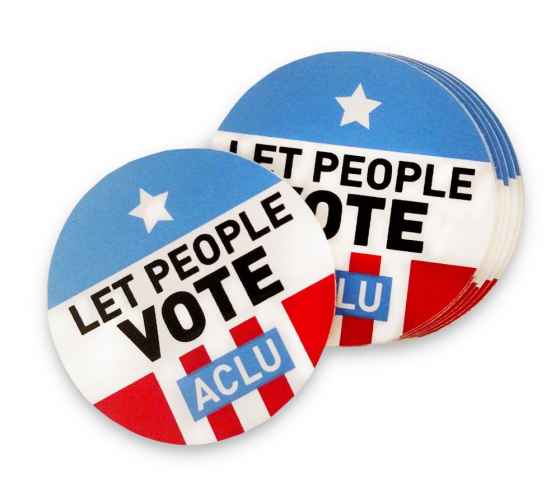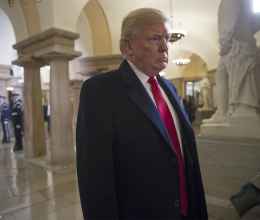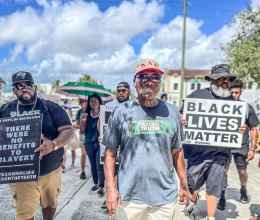Our democracy is stronger when every eligible voter has an equal opportunity to cast a ballot.
That is a guiding principle of the ACLU of Florida, and this year it is even more urgent, as COVID-19 creates serious complications for voting. We must do everything we can to ensure all eligible voters in Florida can vote. In our report, “Let Florida Vote: Coronavirus is only the newest barrier to voting in Florida,” we outline a list of ways supervisors of elections can ensure the most people in their county have access to the ballot box, as well as ways everyday Floridians can advocate for needed changes in election administration.
While many of the struggles facing election administrators during this public health crisis seem unprecedented, they each represent an opportunity to refine local policies and practices, for 2020 and the future, to ensure every Floridian has equal and unencumbered opportunity to vote – and to have that vote count.
Read our report, "Let Florida Vote: Coronavirus is only the newest barrier to voting in Florida."
In confronting this crisis, we must first admit that historically, in Florida, access to the polls has been inconsistent and inequitable. How easy it is to vote and have your vote counted has largely depended on your age, your race, where you live and how much free time you have. These factors will only be exacerbated by the COVID-19 pandemic.
We have identified four pillars to maximize voting access:
- Reliable and fair vote-by-mail
- Access to early voting
- Equity in polling locations and density of precincts
- Access to voting for all, including facilities for the disabled, ballots in other languages apart from English, voting from jail and for those experiencing homelessness.
Voting-by-mail (VBM) will be integral to elections until the risk of coronavirus subsides. Any voter registered in Florida can vote-by-mail. That said, the process needs to be substantially improved. More than 30,000 Floridians who mailed their ballot in the 2018 General Election did not have their vote counted. Many of these ballots were rejected because a lay person decided the signature on the ballot did not match the voter’s signature on file. Keep in mind that the 2000 presidential election was decided by 537 Florida votes. There are administrative changes SOE’s can make right now to address these inequities.
As we deal with the COVID-19 public health crisis, early voting will be crucial to ensure voters can cast their ballots without enduring crowds, long lines, and schedule conflicts, especially with increased caregiver duties. Based on prior performance, some voters do not trust the vote-by-mail process, and our elected officials must take all necessary steps to ensure voters have access to the ballot box and also trust that their vote will be counted.SOE’s should increase the number of days and hours for early voting in their counties, while also minimizing the risk of exposure to COVID-19.
While Florida law sets some requirements, SOE’s ultimately have great influence on how many precincts a county has and where they are located. Research shows that voters are less likely to vote the further they must travel to their polling place. Reducing the number of polling locations likewise has been shown to reduce turnout. SOE’s should balance the number of eligible voters in each precinct, and ensure voters don’t face long lines or commutes just to cast their vote.
As the world adapts to slow the spread of coronavirus, supervisors of elections must take action to ensure all eligible Americans have equal access to the ballot box while minimizing the risk to COVID-19 exposure to keep people safe and healthy. This includes voters who may be disabled, who are awaiting trial in jails, experiencing homelessness, or for whom English is not their first language.
Floridians and voting rights advocates and organizations should use this report to push their local elected officials to administer elections so that the most people can participate and have their vote counted. In these precarious times, we must protect our elections by ensuring they are administered equitably. It’s up to all of us to ensure eligible voters can exercise their right to vote.









